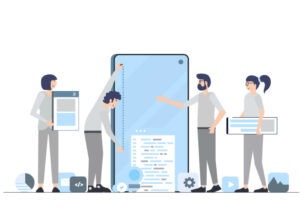Mental Health Clinic Support for Families and Children
Mental health isn’t just an individual issue—it impacts entire families. When a child is struggling emotionally, behaviorally, or socially, the whole family feels it. Similarly, when parents experience stress or mental health challenges, it can affect children’s development and overall well-being. A trusted mental health clinic provides comprehensive support for both children and families, offering care that heals individuals while strengthening the family unit as a whole.
In this article, we’ll explore how mental health clinics support children, teens, and their families with expert care, personalized treatment, and family-centered strategies.
Why Mental Health Support for Families and Children Matters
Childhood and adolescence are foundational stages that shape emotional intelligence, behavior, and lifelong coping skills. Mental health issues left untreated during these stages can lead to:
- Academic struggles
- Social isolation or peer conflict
- Low self-esteem
- Developmental delays
- Chronic mental health conditions in adulthood
When families access support early through a qualified mental health clinic, children can thrive emotionally, socially, and academically. At the same time, parents gain the tools and confidence to support their children while managing their own emotional health.
Common Childhood and Family Mental Health Challenges
Mental health clinics treat a wide variety of concerns affecting children and families, including:
In Children and Teens:
- Anxiety and phobias
- Depression and mood swings
- ADHD and behavioral disorders
- Autism spectrum challenges
- School refusal and academic stress
- Trauma, abuse, or neglect
- Grief or parental separation
- Social skills and peer relationships
In Families:
- Parent-child relationship struggles
- Co-parenting after divorce
- Sibling rivalry and household tension
- Caregiver burnout
- Family trauma or grief
- Communication breakdowns
A family-oriented mental health clinic works not just to treat symptoms, but to improve how family members relate, communicate, and grow together.
How Mental Health Clinics Help Children
Mental health support for children requires a developmentally sensitive approach. Clinics provide age-appropriate therapies and a safe environment where kids can express themselves, even when they don’t have the words.
✅ Play Therapy
Especially effective for young children, play therapy uses toys, art, and games to help kids communicate feelings, resolve conflict, and process experiences.
✅ Cognitive Behavioral Therapy (CBT)
CBT teaches kids how to recognize negative thought patterns and replace them with healthier coping mechanisms. It’s often used for anxiety, OCD, or behavioral issues.
✅ Behavioral Interventions
For issues like ADHD or aggression, therapists work with children to improve self-control, attention, and problem-solving.
✅ Social Skills Training
Therapists help children build confidence in social interactions and teach tools for cooperation, empathy, and communication.
✅ Trauma-Informed Therapy
Clinics provide specialized care for children who’ve experienced abuse, loss, or traumatic events, helping them feel safe, secure, and supported.
Mental Health Support for Teens
Adolescence brings emotional highs and lows, identity questions, and social pressures. A mental health clinic offers teen-specific therapy focused on:
- Coping with academic or peer stress
- Navigating self-image and self-esteem issues
- Understanding emotions and managing anxiety
- Addressing risky behaviors, self-harm, or substance use
- Creating open lines of communication with parents
Therapists create a nonjudgmental space where teens feel safe to talk honestly about their struggles.
How Mental Health Clinics Support Parents and Families
Mental health professionals at a family-focused mental health clinic also work directly with parents and caregivers. Support may include:
👨👩👧 Parent Coaching and Education
Therapists help caregivers understand child development, manage behaviors, and develop healthy discipline strategies.
💬 Family Therapy
Family therapy sessions allow all members to express their feelings, resolve conflict, and rebuild trust.
💡 Psychoeducation
Parents learn about the specific mental health conditions affecting their children and how to support them effectively at home.
🧘♀️ Stress and Self-Care Support
Therapists support parents who are managing their own stress, anxiety, or depression, helping them stay emotionally strong for their families.
🧩 Coordinated School and Medical Support
Clinics often collaborate with teachers, pediatricians, and school counselors to create a comprehensive support system for the child.
Creating a Safe Space for Families
One of the most valuable things a mental health clinic offers is a safe, nonjudgmental environment where families feel heard and respected. This includes:
- Respecting cultural, spiritual, and parenting values
- Using a strengths-based, not blame-based, approach
- Honoring each family member’s voice in the healing process
- Maintaining strict confidentiality and privacy
In this environment, children open up, parents feel empowered, and families grow closer through shared understanding.
Affordable and Accessible Care for Families
Many families worry about the cost or accessibility of mental health services. Fortunately, many clinics provide:
- Sliding-scale payment options based on income
- Insurance coverage (including Medicaid or CHIP)
- Evening or weekend appointments to fit family schedules
- Telehealth sessions for busy parents or remote clients
- Multilingual and culturally inclusive care
These features ensure that all families — regardless of income or background — can receive the support they need.
When Should Families Seek Help?
You don’t need to wait for a crisis to reach out. Signs your family may benefit from a visit to a mental health clinic include:
- A child showing signs of anxiety, sadness, or withdrawal
- Behavior changes like aggression, defiance, or poor grades
- Difficulty adjusting to a divorce, loss, or major life change
- Ongoing tension between family members
- Parental burnout or feelings of helplessness
- Repeated conflict without resolution
Seeking help early can prevent long-term issues and create a healthier family dynamic.
What to Expect at Your First Visit
When you visit a family-focused mental health clinic, your journey begins with an intake process that may involve:
- Family Interviews and Assessments
Therapists will speak with parents and children to understand the family’s concerns, history, and goals. - Treatment Planning
Together, the family and therapist will agree on a course of action — individual therapy for a child, family sessions, parenting support, or a combination. - Ongoing Sessions
Appointments are tailored to your family’s needs, typically happening weekly or biweekly, in-person or virtually. - Progress Reviews
Therapists adjust the treatment plan as needed based on the family’s development and feedback.
Building Stronger Families Through Mental Health Care
Mental health care doesn’t just treat problems — it strengthens families. With support from a compassionate mental health clinic, families can:
- Build stronger communication skills
- Develop emotional regulation strategies
- Heal from trauma or conflict
- Strengthen parent-child bonds
- Support each member’s emotional needs
The clinic becomes more than a treatment center — it becomes a trusted partner in the family’s long-term well-being.
Final Thoughts: Healing Together as a Family
Every family faces challenges — but with the right tools and support, those challenges can become opportunities for growth. A dedicated mental health clinic provides expert care for children, teens, and parents alike, offering the guidance needed to foster emotional balance, healthier relationships, and long-term resilience.













